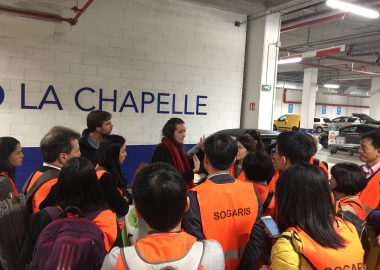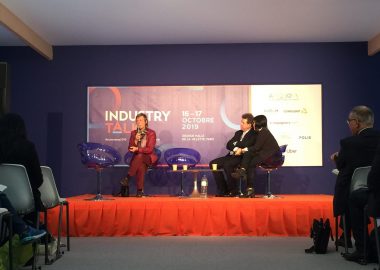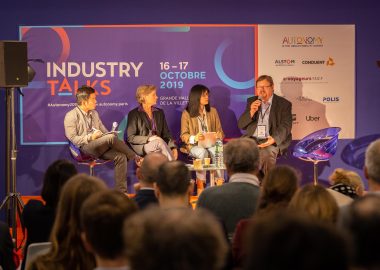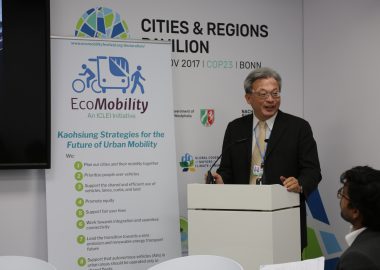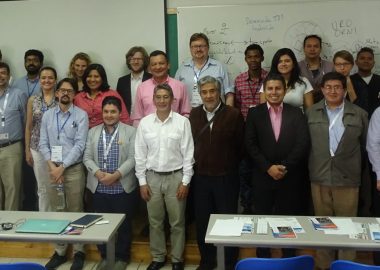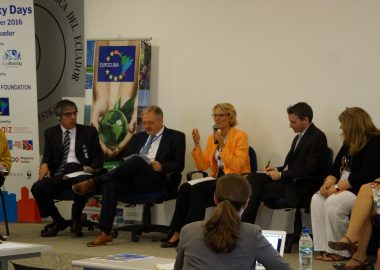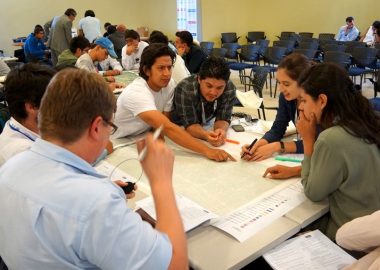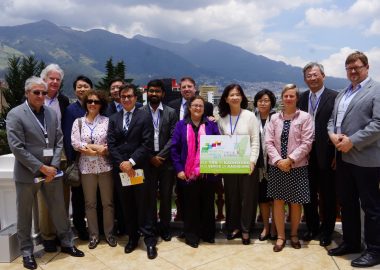EcoMobility Days 2019
Cities attended
More than 20 city leaders from Asia, Europa, North America attended the EcoMobility Days 2019. The Mayors, Head of transports and mobility experts shared their experience and commitment to implementing ecomobility in their cities.
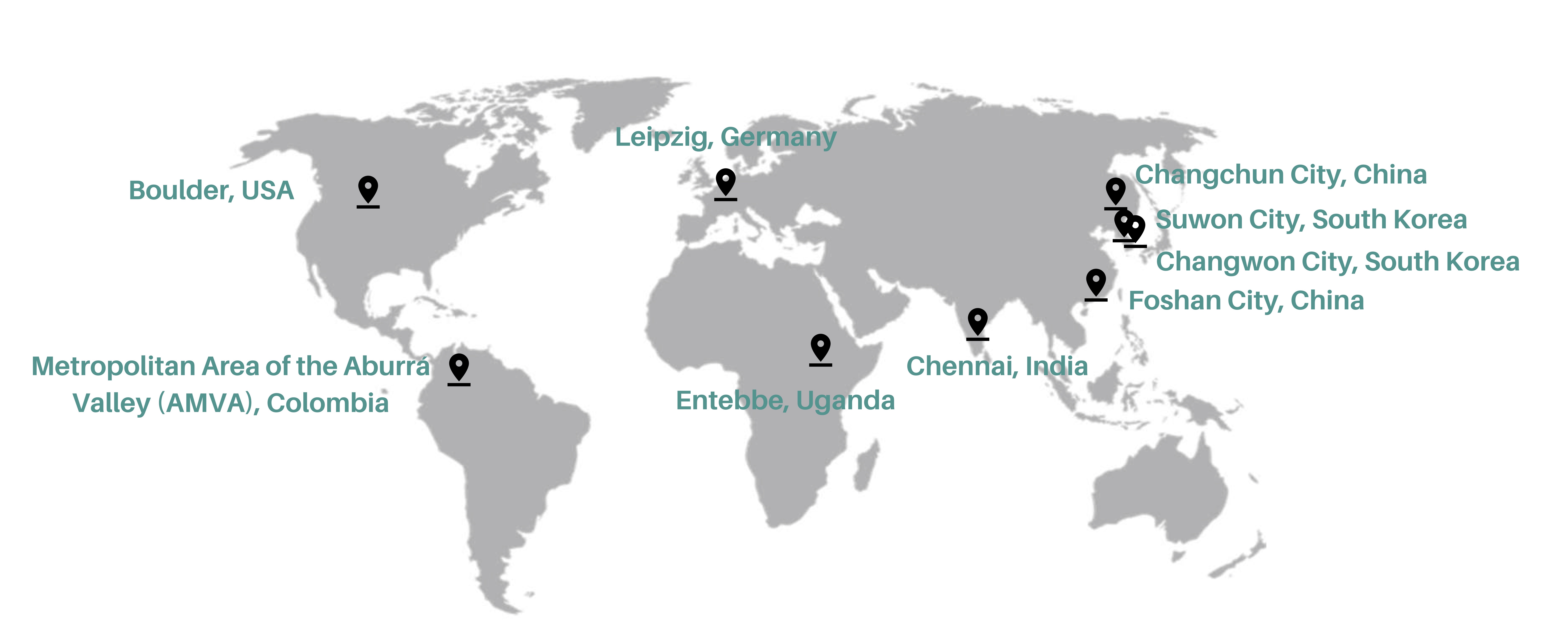
EcoMobility Days 2019 Program
- Tsu-Jui Cheng, Program Manager, and Global Coordinator, Sustainable Mobility, ICLEI World Secretariat, Bonn, Germany
- Video message by Gino van Begin, Secretary General, ICLEI, Bonn, Germany
Introduction and update of ICLEI’s Sustainable Mobility work
- EcoMobility Alliance
- EcoMobility SHIFT+
- TUMI Network
Beatrice Ch’ng, Sustainable Mobility Officer, ICLEI World Secretariat, Bonn, Germany
Present ICLEI’s EcoLogistics work and demonstration of the self-monitoring tool
Himanshu Raj, Sustainable Mobility Officer, ICLEI World Secretariat, Bonn, Germany
City introduction
- What are the challenges you face in sustainable urban mobility in your country and region?
- What are the flagship or core development projects or focus your city is worki ng on now?
- What are your future priorities?
Cities
- Boulder, USA
- Changwon, South Korea
- Suwon, South Korea
- Entebbe, Uganda
- Jinja, Uganda
- Chennai, India
- Leipzig, Germany
- Foshan, China
- Changchun, China
Moderated discussion to connect the cities’ interest and ICLEI’s work to explore future opportunities for collaboration
The discussion pointers are:
- What are the goals your city would like to work on or explore in the upcoming one year?
- What experience can you offer to exchange and share with other countries?
- What actions can we replicate or scale up for increased impacts?
- How can ICLEI’s support you through our work or programs? Are there any points of interest from today’s discussion
Some program areas
- Electric mobility
- Walking and cycling
- Parking
- Shared mobility
- Autonomous vehicles
- Public transport
- Freight
- Sustainable Urban Mobility Plan and Assessment
Thoughts for the future
- EcoMobility Days 2020
Industry Talks at Autonomy
Format : Roundtable
Speakers :
Suzanne Jones, Mayor, City of Boulder, Colorado, USA
Torben Heinemann, Head of transport, City of Leipzig, Germany
Chen Jingyi, Project Manager, Planning and Development Bureau, Management Committee of Foshan Sino-German Industrial Services Zone, Foshan, China
This round table was moderated by Tsu-Jui Cheng, Program Manager and Global Coordinator, Sustainable Mobility, ICLEI World Secretariat, Bonn, Germany.
The urban mobility landscape in cities from Shenzhen to Oslo to Santiago is shifting. Faced with deteriorated air quality, cities are issuing more and more pollution alerts to mitigate the harmful risk of breathing in bad air. It is increasingly clear that electric vehicles (EVs) will play a major role in reducing greenhouse gas emissions and improving air quality. For electrification to have its maximum benefits, EVs must be plugged into a green grid, yet even under a high-carbon grid, electric buses on a well-to-wheel basis emit 30 percent fewer CO2 emissions than diesel buses.
While the electric revolution is happening, some questions are still unsolved, some more controversial than the others – how should waste batteries be handled? How can cities maximize the benefits of electrification while not encouraging more usage of private cars?
This session explored innovation pathways towards a cleaner energy and mobility system from three cities.
Time : 12.35-13.10, 17 October 2019
Format : Roundtable
Speakers :
Eugenio Prieto Soto, Director, Metropolitan Area of the Aburrá Valley (AMVA), Colombia
Monika Zimmermann, Expert, Consultant, Urban Sustainability; Former Deputy Secretary General, ICLEI – Local Governments for Sustainability
This roundtable was moderated by Tsu-Jui Cheng, Program Manager and Global Coordinator, Sustainable Mobility, ICLEI World Secretariat, Bonn, Germany
Driven by economic growth and the increasing demand for goods, freight transportation is at the core of today’s global economy. It is responsible for nearly 40% of the overall transport emissions in 2015 but is expected to be at least equivalent to passenger transport by 2050. The latest estimate from the International Transport Forum (ITF) says that global freight volume will triple between 2015 and 2050 based on current demand.
While urban freight issues are complex, good practices can be found from cities worldwide that are taking action to deliver sustainable urban freight. Many cities are starting to incorporate freight transport into their sustainable mobility plans or carbon emission reduction plans.
In this session, we discussed how ecologistics helps cities identify the importance of goods transportation and the benefits cities can receive when managing urban freight transport.
Site visit in Paris
Introduction of ICLEI’s Sustainable Mobility
Introduction to sustainable urban mobility in Paris
Introduction to sustainable mobility in the Paris region
Guided tour in Sogaris multimodal Consolidation Center
News


